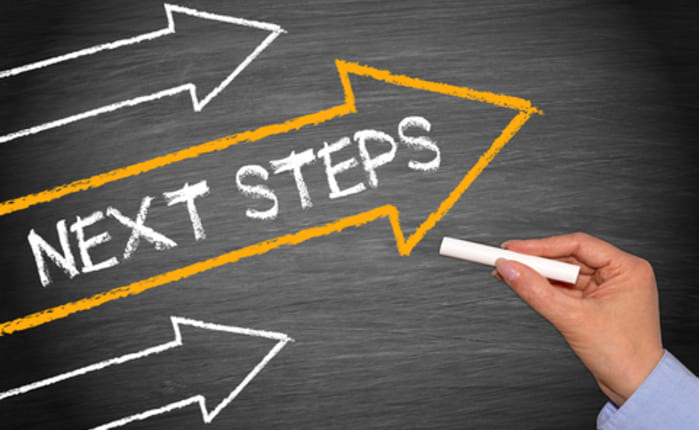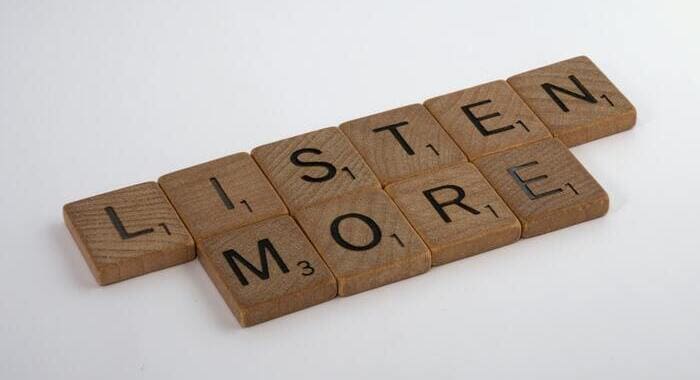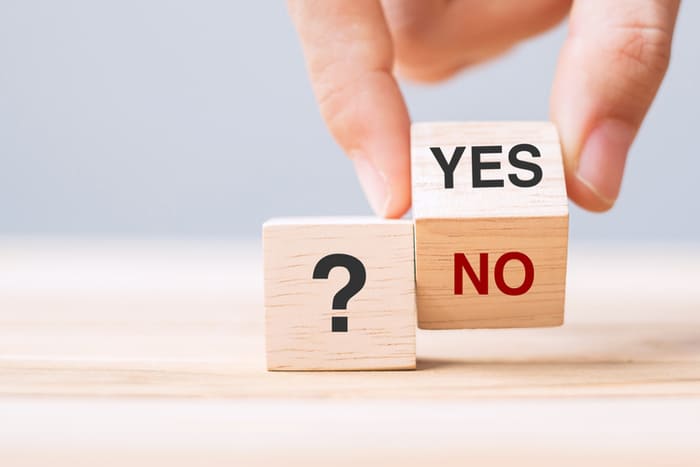If you are new to sales, then there’s no doubt; you’re going to make a few mistakes along the way. Now, the good news is this: If we’re smart about it, we can learn from those mistakes and practice improving sales skills.
But the reality is this: If we can avoid those mistakes altogether, we accelerate our progress.
In this post, I’m going to share with you some of the lessons that I learned early on in sales with the hope that I’ll help you avoid making the same mistakes I did.
And the very end I’ll share with you kind of one of the biggest situations that I encountered and how I navigated through that. So that if you encounter a similar situation, you’ll be able to do the same.
(0:43)
You know, we’ve all been there. We’ve all started in sales. So whether you’re somebody who has been in sales for a while, or you’re brand new to sales, we’ve all been in your position.
I remember for myself, it was being nervous about, you know, meeting with somebody for the first time.
- What questions am I going to ask?
- How am I going to move them from a conversation to buying this thing I’m selling?
- What if they say no? Right?
There’s so much stress!
Well, here’s the reality: There’s only a certain number of lessons that I’ve learned that have helped me develop my selling strategies and accelerate performance.
And I’ve found that with others who I’ve worked with, who are new in sales, this has taught them how to improve sales skills and has dramatically improved their performance. It sped them along to make more money faster because they’ve avoided those mistakes that I made at such a young age.
I actually started in sales officially in my twenties, but began knocking on doors when I was 11! (So it’s been a while.)
Let’s jump into those lessons.
5 Lessons (From My First Sales Job) For Improving Sales Skills
Improve Sales Skill #1: Always Know Your Next Step
Lesson number one is pretty simple: Know your next step.
In fact,
Always know your next step.
I can tell you when I first started my official job in sales, I was selling cars. So in that case, people would come to the parking lot. I would meet them in the parking lot. We’d have a conversation and invariably, we would get to discussing a car after all. Otherwise, why would they stop by? It was rare that somebody stopped by and didn’t want to buy a car.
Now they didn’t always buy from me. But what I found is that I could have that conversation just like I’m having now, but I wasn’t always clear in my mind as to what the next step was.

So, I would get locked up in discussing family and friends and the colors of cars and features and benefits. And I didn’t know where to go after that point and I’d walk away frustrated because we didn’t go anywhere. I didn’t make the sale.
(2:28)
In fact, people started calling me saying, “Hey Shawn, I just wanna let you know I had a great conversation with you. Uh, but I bought a car down the street.”
So, clearly, that person was better at the job. The big gap for me was not knowing what the next step was.
What you want to do is make sure you understand what are the steps in my sales pipeline or what are the steps in my sales process. Then, when you’re in a conversation, just always know in the back of your mind what the next steps are.
When I started out, I used to write them and I had them on the cover of my book. So, if I sat down with you, I’d open my book and I could see the steps that I could quickly reference down, which was a reminder as to what the next step is, which allowed me to always be heading in that direction.
So always know your next step.
Improving Sales Skill #2: Listen As Much As You Speak
 (3:04)
(3:04)
Now this one’s a little bit hard for me. I learned it early on.
You always want to listen as much or better, better yet more so than you speak.
So as you can tell, I can talk, right? I do this for a living. I attend conferences, I’m a keynote speaker, and do virtual presentations, you name it.
I enjoy speaking both to groups as well as large audiences. However, in sales, that’s not always a good thing.
It’s good if you can speak to others and if you’re comfortable doing so, but you don’t learn anything if you don’t stop talking.
So here’s the key: If you want to make sure you speak the same amount or preferably less than what your buyer does, ask questions. So have a good list of questions ready and then ask them and sit and listen.
(3:47)
And as you’re listening, it’s okay if you want to take notes. So even if you’re new and you’re thinking, okay, they’re giving me responses here. I don’t know what to do with them. Write them down, and just say to the buyer, “You’ve raised some good points. Do you mind if I take some notes here?” Nobody is going to care.
And if you’re doing this virtually, you can even get software that’ll take those notes for you.
But the point is this: Always ask good questions and that will enable you to make sure you don’t talk at the same level or more so than your buyer. That allows you to learn the information you need to learn in order to take that next step.
Improve Sales Skill #3: Document Your Progress
 If you’re new to sales, one of the challenges, obviously at the start is getting some prospects lined up.
If you’re new to sales, one of the challenges, obviously at the start is getting some prospects lined up.
But as you start to gain some momentum, what I find is we often go from documenting those prospects in a book or on a piece of paper, maybe in a CRM. But I find when people are new, they’re a little bit uneasy, jumping into a CRM right away. So they document it somewhere.
But as you get busy, you need to keep track of where everybody is, right? What is the next step for each of these prospects you’re dealing with? So for that reason, the number three lesson is to document your progress.
I can’t tell you how many times I connected with people early on and I’d be asking myself, so where did we leave off? What are the next steps?
And so invariably, here’s a little, little strategy for you: You can ask, you can say something like, “You know, the last discussion we had was really good. I wanted to get your perspective on what those next steps are.” Now. That’s kind of a backup plan.
Preferably you come in prepared and you know the next step, which is why lesson number three is:
Always be ready and have documented where you left off so that when you reconnect, you know what the next step is.
I even teach when it comes to your prospecting touch points to have a plan (aka Here’s my eight steps of how I’m gonna reach out to people) and then document which step you’re on.
Number 1, 2, 3, 4, etc., in your notes.
So that, you know, when you look at Company A or Person A you know that they’re at step two, which means next is step three.
- Document your progress.
- It makes conversations obviously flow better.
- You don’t get into the awkward situation of not knowing what’s next. And,
- It speeds up your ability to move to the close because you’re always progressing that discussion and conversation.
(6:12)
Okay, this next one goes without saying, but I made this mistake early on and it got so frustrating.
Improving Sales Skill #4: Ask For the Sale
 Lesson number four: Make sure you ask for the sale. Here’s what that means.
Lesson number four: Make sure you ask for the sale. Here’s what that means.
If you’re in a conversation you’ve explored features and benefits, you understand your buyer, and what their needs are, and it really appears to you that there’s a good fit here, you want to ask for the sale.
Now, it’s okay if it’s a little bit too early. If it is, the buyer’s gonna say to you, well, I have some more questions first. Okay. No problem.
But make sure you ask, you might say something like, “You know, it seems to me at this point that what I’m selling,” (and again, you can personalize this a bit), “what I’m selling really aligns with what you’re looking for, would you agree?” Again, they’re either gonna say yes or no.
If you say something a little more direct, you might say, ”Well, it seems to me like the next step would be to put the proposal together and move forward. Uh, does that sound good to you?”
So what I’m doing here is testing by asking for the sale.
You can do it in a multitude of ways, but the point is, if you think you’re getting there, ask a question (it’s harmless) and your buyer will tell you, “Yes, I agree that’s the next step” or “No, I don’t.”
But going back to some of my previous videos, if it’s early on in the discussion, you haven’t really got into building much rapport yet you don’t really fully understand the buyer’s situation or their needs.
Then you ask that question. They say, yes, send me a quote or send me a proposal. They might be pushing you out of the office. So be very careful if you’re gonna suggest that is your next step.
But make sure you ask for the sale.
Ultimately your buyer will tell you whether you’re on track or not. And that will ensure that if you are on track, they’ll say yes. Then it’s a no-brainer and you know what the next steps are.
If they say no, then you know what you need to address in order to move things forward.
Improve Sales Skill #5: Avoid Disputing Objections

This next one comes from personal experience. You may have had the same, even though you’re new to sales.
When it comes to objections (and you’re gonna get all sorts, right?)
- Your price is too high.
- Your timing’s off this.
- Isn’t the best solution for us.
The objections come in all different forms.
(8:02)
But here’s the key:
When you get an objection, don’t argue with it, don’t disagree with it.
I did that early on. I’d say, “Well, why would you think that?” It’s not the best question to ask. You always want to agree. Because, at the end of the day, we’re not the buyer.
And if they share a concern with us, it’s obviously a concern for them. We need to respect that.
How do we do that? We say, “Okay, I understand the price for you right now is too high.” And then we move to our transition.
So whatever that transition might be, you might say, “I understand right now, this price seems too high.” But if we go back to our return on investment…” Right? We talked about that in an earlier video. (link)
(8:39)
My point is this: If you’re given an objection by a buyer,
- Don’t disagree.
- Don’t dispute it.
- Don’t argue it.
- Don’t clam up and say nothing.
Instead, make sure you agree with it. Say, “You know, I understand.” And then move to your transition statement, which is bringing them back into the value and the return on investment that your product service provides.
If you are a sales professional, and especially if you’re new in sales, staying on track with all the different activities and goals that you need to, can become a challenge.
Even if you’ve got the best software, tracking your own personal progress is a challenge. For that reason, I created what I call the 30-Day Sales Action Planner.
Click the link and grab it for yourself, and put it to use. There’s no charge at all. And it’s my gift to you to try and help you if you’re new in sales, it will help improve sales skills and progress and accelerate faster than ever before.
Last but not least. If you are new in sales, you’re gonna need to practice your influence. So, I put this video together for you to watch next, which will help you master your influence when it comes to selling.
And until next time let’s get out there and go sell something.
© Shawn Casemore 2023. All Rights Reserved.


Share This Article
Choose Your Platform: Facebook Twitter Google Plus Linkedin